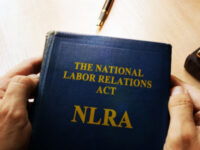Following New Decision, Your Handbook May Be Unlawful and Need Revision
Two years ago, in a memo issued by the National Labor Relations Board (NLRB), the agency’s general counsel signaled that one of the Board’s main priorities would be to scrutinize whether certain workplace policies unlawfully infringed on employees’ rights to engage in protected activity under Section 7 of the National Labor Relations Act (NLRA). Common […]










